August 9 stands as one of history’s most eventful days, witnessing the rise and fall of empires, groundbreaking discoveries, and moments that shaped our modern world across centuries of human achievement.
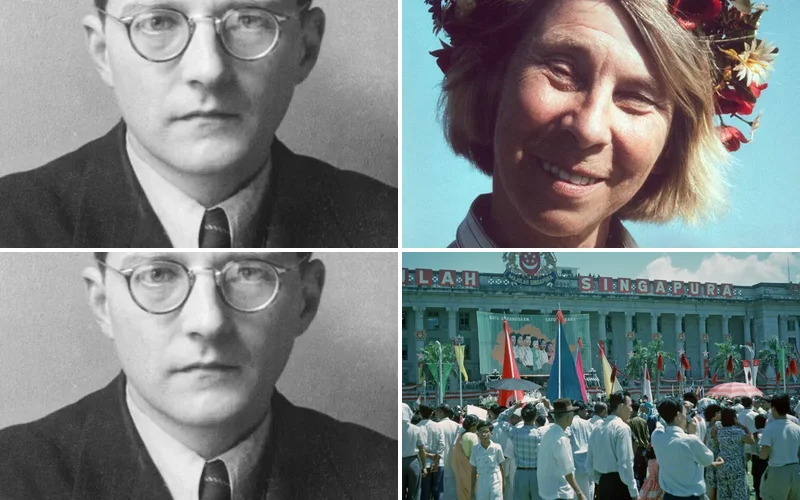
Politics and Government Events on August 9
1902 – Edward VII and Alexandra of Denmark Crowned
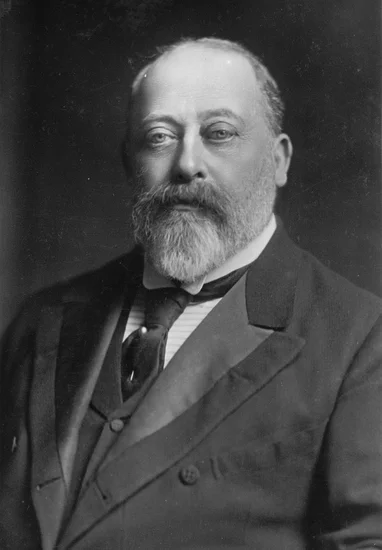
The British Empire celebrated as Edward VII and Alexandra of Denmark received their coronation as King and Queen of the United Kingdom of Great Britain and Ireland. The elaborate ceremony marked the beginning of the Edwardian era.
The royal couple’s reign would usher in significant social and political changes across the British Empire. Their coronation symbolized continuity and renewal following Queen Victoria’s lengthy reign.
1974 – Nixon Becomes First US President to Resign
Richard Nixon made history by becoming the first President of the United States to resign from office as a direct result of the Watergate scandal. Vice President Gerald Ford immediately assumed the presidency.
The resignation fundamentally altered American politics and public trust in government institutions. Nixon’s departure marked the end of one of the most tumultuous periods in modern American political history.
1991 – Liberal Democratic Party Loses 38-Year Hold on Japan
The Liberal Democratic Party of Japan experienced a historic defeat, ending their 38-year dominance of national leadership. This political earthquake transformed Japan’s governmental landscape.
The power shift reflected growing public dissatisfaction with traditional political structures. Japanese voters embraced change after decades of single-party rule.
1960 – South Kasai Secedes from Congo
The mineral-rich province of South Kasai declared independence from the newly formed Democratic Republic of Congo. This secession occurred amid the broader chaos following Congo’s independence from Belgium.
The breakaway region sought to protect its diamond mining interests and ethnic Luba population. International recognition remained limited as the central government rejected the secession.
1965 – Singapore Expelled from Malaysia
Singapore was forcibly expelled from the Malaysian Federation due to irreconcilable political and racial differences. The separation created Southeast Asia’s newest independent nation.
Prime Minister Lee Kuan Yew wept publicly as he announced Singapore’s unexpected independence. The city-state would transform this setback into remarkable economic success.
1971 – Operation Demetrius Launched in Northern Ireland
British authorities initiated Operation Demetrius, involving mass arrests and internment without trial of suspected Irish Republican Army members. The operation sparked widespread riots across Northern Ireland.
Thousands of people fled or were forced from their homes as violence escalated. The controversial internment policy deepened sectarian divisions and fueled decades of conflict.
Military and Naval History on August 9
1945 – Atomic Bomb Devastates Nagasaki
The United States dropped the atomic bomb “Fat Man” on Nagasaki, Japan, killing 35,000 people outright including war workers, Korean forced laborers, and soldiers. The B-29 bomber Bockscar delivered this second nuclear weapon.
The devastating attack effectively ended World War II as Japan prepared for surrender. The bombing demonstrated America’s overwhelming nuclear superiority and changed warfare forever.
1945 – Red Army Invades Japanese-Occupied Manchuria
Soviet forces launched a massive invasion of Japanese-occupied Manchuria, fulfilling Stalin’s promise to enter the Pacific War. The Red Army’s overwhelming assault shattered Japanese defensive positions.
The invasion convinced Emperor Hirohito that Japan’s military situation was hopeless. Soviet entry into the Pacific War accelerated Japan’s decision to surrender.
1942 – Battle of Savo Island Disaster
Imperial Japanese Navy cruisers surprised and decisively defeated Allied naval forces protecting amphibious operations during the Battle of Guadalcanal. The night attack caught Allied commanders completely off guard.
The devastating defeat highlighted Japanese naval superiority in night combat operations. Allied forces learned costly lessons about coordinated defense and communication.
1944 – Vyborg-Petrozavodsk Offensive Ends
The Soviet Union’s largest offensive against Finland during the Continuation War concluded in strategic stalemate. Both Finnish and Soviet forces established defensive positions along a stabilized front.
The offensive demonstrated Finland’s remarkable defensive capabilities against overwhelming odds. The stalemate would persist until the war’s end in 1945.
1925 – Kakori Train Robbery Strikes British Government
Indian independence revolutionaries executed a dramatic train robbery near Lucknow, directly challenging British colonial authority. The operation targeted government funds and sparked widespread attention.
The bold attack demonstrated growing resistance to British rule across India. Revolutionary activities like this galvanized the independence movement and inspired future freedom fighters.
Science and Discovery Milestones on August 9
1973 – Mars 7 Launched from USSR

The Soviet space program launched Mars 7 as part of their ambitious planetary exploration initiative. The spacecraft represented cutting-edge technology in interplanetary mission design.
Mars 7 contributed valuable data to humanity’s understanding of interplanetary travel. The mission advanced Soviet expertise in deep space navigation and planetary science.
1944 – Smokey Bear Makes Forest Service Debut
The United States Forest Service and Wartime Advertising Council released the first posters featuring Smokey Bear. The iconic character would become America’s most recognizable public service symbol.
Smokey Bear’s “Only You Can Prevent Forest Fires” message resonated with wartime conservation efforts. The campaign successfully reduced forest fires and educated generations about fire prevention.
1942 – Shostakovich’s 7th Symphony Premieres in Besieged Leningrad

Dmitri Shostakovich’s monumental 7th Symphony received its premiere performance in besieged Leningrad during the darkest days of the siege. The orchestra performed despite starvation and constant bombardment.
The symphony’s performance became a symbol of cultural resistance against Nazi oppression. Musicians and audiences demonstrated that art could triumph over warfare and devastation.
Cultural and Arts Events on August 9
1907 – First Boy Scout Encampment Concludes

The inaugural Boy Scout encampment ended at Brownsea Island in southern England, establishing the foundation for the worldwide scouting movement. Twenty boys participated in this historic gathering.
Robert Baden-Powell’s experimental camp proved that youth could develop character through outdoor activities. The movement would eventually reach millions of young people across the globe.
1936 – Jesse Owens Wins Fourth Olympic Gold Medal
Jesse Owens captured his fourth gold medal at the Berlin Olympics, delivering a devastating blow to Nazi theories of racial superiority. His athletic achievements silenced Hitler’s propaganda machine.
Owens’ victories demonstrated African American excellence on the world’s biggest stage. His performance became a powerful symbol of equality and human potential.
2012 – Shannon Eastin Becomes First Female NFL Official
Shannon Eastin made history by becoming the first woman to officiate an NFL game. Her groundbreaking appointment broke barriers in professional sports officiating.
Eastin’s achievement opened doors for future female officials in major sports leagues. Her competence and professionalism proved that officiating excellence transcends gender boundaries.
Religious and Social Events on August 9
1969 – Manson Family Murders Shock America

Charles Manson’s followers murdered actress Sharon Tate and four others in the Tate-LaBianca killings that horrified the nation. The brutal crimes ended the innocence of the 1960s counterculture movement.
The murders revealed the dark underbelly of California’s hippie movement and cult psychology. The case became a landmark study in criminal psychology and media coverage.
2013 – Gunmen Attack Sunni Mosque in Quetta
Gunmen opened fire at a Sunni mosque in Quetta, Pakistan, killing at least ten people and injuring thirty others. The attack highlighted escalating sectarian violence in the region.
The assault demonstrated the dangerous religious tensions plaguing Pakistan’s Balochistan province. Such attacks undermined social stability and interfered with religious freedom.
2014 – Michael Brown Shooting Sparks Ferguson Unrest
Police shot and killed 18-year-old Michael Brown in Ferguson, Missouri, after he allegedly assaulted an officer and attempted to steal his weapon. The incident sparked widespread protests and national debates.
The shooting catalyzed the Black Lives Matter movement and renewed discussions about police accountability. Ferguson became a symbol of racial tensions in American law enforcement.
Business and Economic Events on August 9
1999 – Yeltsin Fires Prime Minister and Cabinet
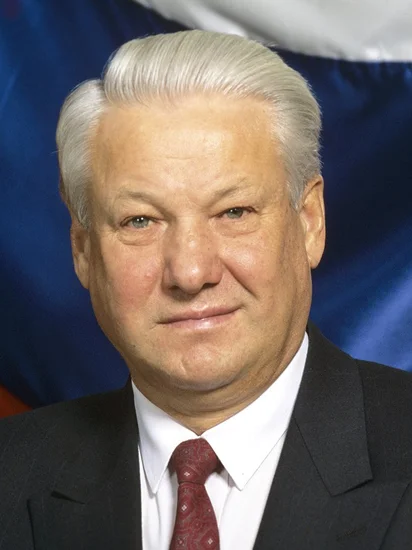
Russian President Boris Yeltsin dismissed Prime Minister Sergei Stepashin and fired his entire cabinet for the fourth time. The dramatic reshuffling reflected Russia’s continuing political instability.
Yeltsin’s frequent cabinet changes undermined investor confidence in Russian markets. The political turbulence complicated Russia’s transition to a market economy.
2006 – Transatlantic Aircraft Plot Foiled
British authorities arrested at least 21 suspected terrorists in a major counterterrorism operation targeting transatlantic flights. The arrests occurred simultaneously in London, Birmingham, and High Wycombe.
The plot’s discovery prevented potentially catastrophic attacks on international aviation. Security measures increased dramatically at airports worldwide following the investigation.
2021 – Tampere Light Rail Begins Operations

Finland’s Tampere light rail system officially commenced operations, marking a significant investment in sustainable urban transportation. The modern system connected key areas of the city.
The light rail represented Finland’s commitment to reducing urban carbon emissions. Public transportation improvements like this supported environmental goals and urban development.
Transportation and Infrastructure on August 9
1970 – LANSA Flight 502 Crashes in Peru

LANSA Flight 502 crashed after takeoff from Cusco’s airport, killing 99 of 100 passengers and crew plus two people on the ground. The disaster highlighted aviation safety concerns in mountainous terrain.
The crash prompted investigations into high-altitude airport operations and aircraft performance. Safety improvements followed to prevent similar tragedies in challenging geographic conditions.
1995 – Aviateca Flight 901 Crashes into Volcano

Aviateca Flight 901 crashed into San Vicente volcano in El Salvador, killing all 65 people aboard. The tragic accident occurred during challenging weather conditions.
The disaster underscored the dangers of flying near volcanic terrain in Central America. Aviation authorities implemented stricter safety protocols for flights in volcanic regions.
2007 – Air Moorea Flight 1121 Crashes After Takeoff

Air Moorea Flight 1121 crashed immediately after takeoff from Moorea Airport in French Polynesia, killing all 20 people on board. The accident shocked the small island community.
The crash highlighted safety challenges facing small regional airlines in remote locations. Investigators focused on mechanical failures and maintenance procedures.
2024 – Voepass Flight 2283 Crashes Near São Paulo

Voepass Linhas Aéreas Flight 2283 crashed near Vinhedo, São Paulo, killing all 62 people aboard. The disaster marked one of Brazil’s deadliest aviation accidents in recent years.
The crash prompted renewed scrutiny of Brazilian aviation safety standards. Investigators examined weather conditions and aircraft maintenance records.
Sports and Recreation on August 9
1991 – Italian Prosecutor Murdered by Mafia
The ‘Ndrangheta murdered prosecutor Antonino Scopelliti on behalf of the Sicilian Mafia while he prepared the government’s case for the Maxi Trial’s final appeal. The assassination shocked Italy’s legal system.
Scopelliti’s murder demonstrated organized crime’s determination to intimidate the judicial system. His death became a rallying point for Italy’s anti-mafia efforts.
1993 – Political Upheaval Shakes Japan
Japan’s Liberal Democratic Party lost its 38-year grip on national leadership in a historic electoral defeat. The political earthquake reshaped Japanese governance and policy-making.
Voters demanded change after decades of single-party dominance and corruption scandals. The shift marked Japan’s transition toward more competitive democratic politics.
1902 – British Coronation Ceremony Completed
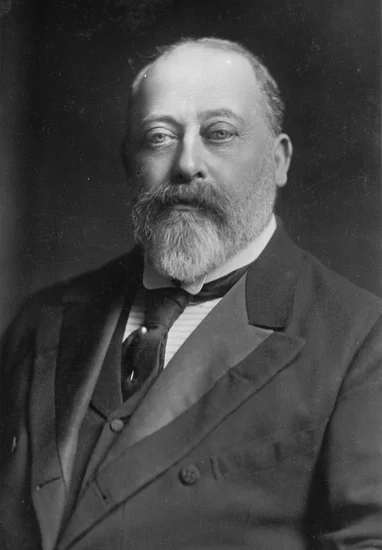
Edward VII and Alexandra of Denmark completed their coronation as British monarchs in an elaborate Westminster Abbey ceremony. The event marked the formal beginning of the Edwardian era.
The coronation demonstrated imperial continuity following Queen Victoria’s death. Subjects throughout the British Empire celebrated their new sovereign’s investiture.
Notable Births on August 9
1911 – William Alfred Fowler Born

American astronomer and astrophysicist William Alfred Fowler entered the world, destined to become a Nobel Laureate for his groundbreaking work. His childhood curiosity about the stars shaped his scientific career.
Fowler would revolutionize understanding of stellar nucleosynthesis and cosmic element formation. His research explained how stars create the chemical elements essential for life.
1914 – Tove Jansson Born

Finnish author and illustrator Tove Jansson was born, later creating the beloved Moomin characters that would captivate children worldwide. Her artistic talents emerged early in childhood.
Jansson’s Moomin stories became cultural treasures that transcended national boundaries. Her work earned international acclaim and established her as Scandinavia’s premier children’s author.
1922 – Philip Larkin Born
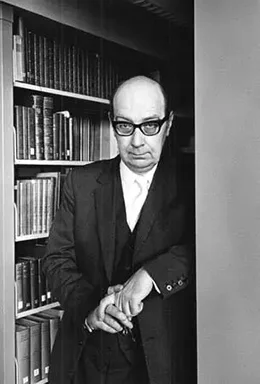
English poet Philip Larkin was born, destined to become one of Britain’s most influential contemporary poets. His early experiences shaped his distinctive literary voice.
Larkin’s poetry would capture the complexities of modern British life with remarkable precision. His work earned critical acclaim and popular appreciation across generations.
1928 – Bob Cousy Born

American basketball player Bob Cousy was born, later revolutionizing the point guard position in professional basketball. His athletic abilities became apparent during his youth.
Cousy’s innovative playing style and leadership would make him a Boston Celtics legend. His contributions to basketball strategy influenced generations of players and coaches.
1938 – Rod Laver Born
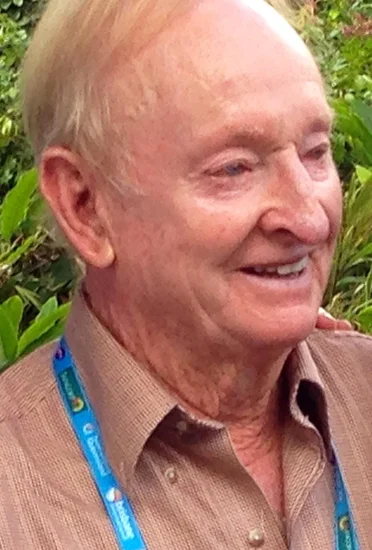
Australian tennis player Rod Laver was born, destined to achieve the sport’s ultimate accomplishment twice. His tennis talents developed through countless hours of practice.
Laver would become the only player to win the Grand Slam twice in tennis history. His achievements established him as one of the greatest players ever.
1964 – Hoda Kotb Born

American journalist and television personality Hoda Kotb was born, later becoming a beloved morning show host. Her communication skills emerged early in her development.
Kotb’s warm personality and professional excellence would make her a trusted news anchor. Her career demonstrated the power of authentic journalism and human connection.
1991 – Whitney Houston Born

American singer Whitney Houston was born, destined to become one of the best-selling music artists of all time. Her extraordinary vocal range was evident from childhood.
Houston’s powerful voice and emotional delivery would dominate popular music for decades. Her influence on contemporary music and culture remains profound and lasting.
Notable Deaths on August 9
1919 – Ruggero Leoncavallo Died
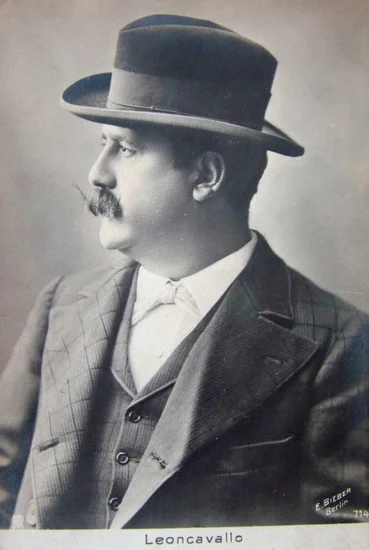
Italian composer Ruggero Leoncavallo passed away, leaving behind immortal operatic masterpieces that continue to enchant audiences worldwide. His musical genius created enduring theatrical experiences.
Leoncavallo’s opera “Pagliacci” remains a cornerstone of the international repertoire. His dramatic compositions perfectly captured human emotion and theatrical intensity.
1942 – Edith Stein Died

German nun and saint Edith Stein died in the Holocaust, having converted from Judaism to Christianity before her persecution. Her philosophical writings bridged faith and reason.
Stein’s martyrdom demonstrated the Nazi regime’s brutal persecution of converted Jews. Her canonization honored both her intellectual contributions and ultimate sacrifice.
1945 – Robert Hampton Gray Died

Canadian lieutenant and pilot Robert Hampton Gray was killed in action, earning the Victoria Cross for his heroic final mission. His courage exemplified the finest military traditions.
Gray’s sacrifice contributed to Allied victory in the Pacific War. His posthumous recognition honored exceptional bravery in the face of overwhelming enemy fire.
1962 – Hermann Hesse Died
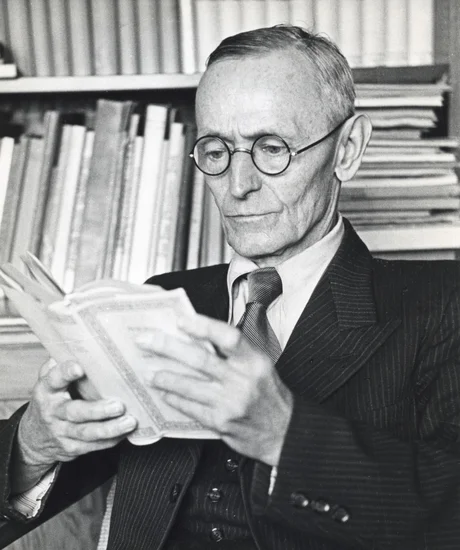
German-Swiss poet, novelist, and Nobel Prize laureate Hermann Hesse passed away, leaving behind literary masterpieces that explored spirituality and self-discovery. His philosophical novels influenced generations of readers.
Hesse’s works like “Siddhartha” and “Steppenwolf” became cultural touchstones for spiritual seekers. His writing perfectly captured the modern search for meaning and authentic existence.
1975 – Dmitri Shostakovich Died

Russian composer Dmitri Shostakovich passed away, having created symphonies and compositions that survived Soviet oppression while maintaining artistic integrity. His music bore witness to historical trauma.
Shostakovich’s works balanced political survival with artistic truth under totalitarian rule. His compositions remain powerful testimonies to human resilience and creative expression.
1995 – Jerry Garcia Died

American singer-songwriter and guitarist Jerry Garcia passed away, ending the legendary career of the Grateful Dead’s spiritual leader. His musical innovations influenced countless musicians worldwide.
Garcia’s improvisational guitar work and songwriting created a unique American musical tradition. His death marked the end of an era in rock music and counterculture.
1969 – Sharon Tate Died

American actress Sharon Tate was murdered by Charles Manson’s followers, shocking Hollywood and ending a promising career. Her death symbolized the violent end of 1960s idealism.
Tate’s murder became one of the most notorious crimes in American history. The tragedy highlighted the dangerous intersection of fame, violence, and mental illness.
Holidays and Observances on August 9
International Day of the World’s Indigenous Peoples
The United Nations established this day to promote and protect the rights of indigenous populations worldwide. The observance raises awareness about indigenous cultures and challenges.
Indigenous communities use this day to celebrate their heritage and advocate for their rights. The observance highlights the need for cultural preservation and social justice.
Singapore National Day

Singapore celebrates its independence from Malaysia in 1965 with elaborate festivities and national pride. The day commemorates the city-state’s unexpected journey to sovereignty.
National Day celebrations demonstrate Singapore’s remarkable transformation from reluctant independence to economic powerhouse. The festivities unite citizens in celebrating their unique multicultural identity.
National Women’s Day in South Africa
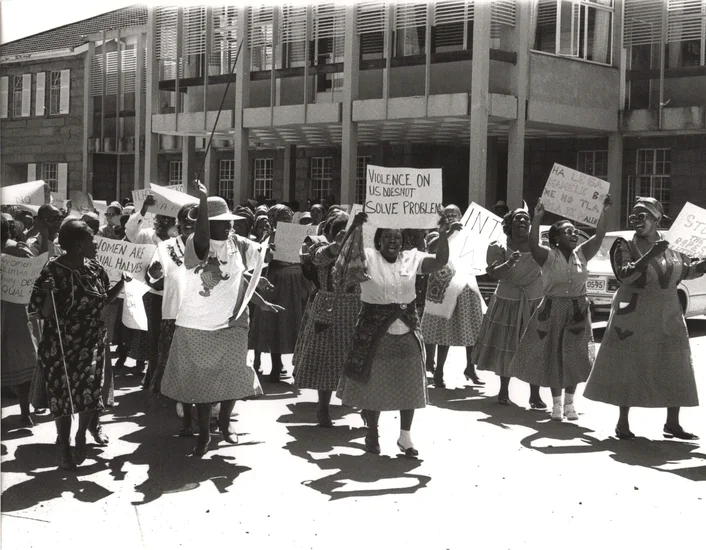
South Africa honors the contributions and struggles of women in the fight against apartheid and for equality. The day commemorates the 1956 women’s march to protest pass laws.
The observance celebrates women’s courage in challenging racial oppression and gender discrimination. South African women continue to play vital roles in building democratic society.
Day of Finnish Art
Finland celebrates its artistic heritage, coinciding with Tove Jansson’s birthday, honoring the nation’s cultural contributions. The day recognizes Finland’s rich tradition of visual and literary arts.
Finnish artists and writers have made significant contributions to world culture. The celebration emphasizes the importance of arts education and cultural preservation.
